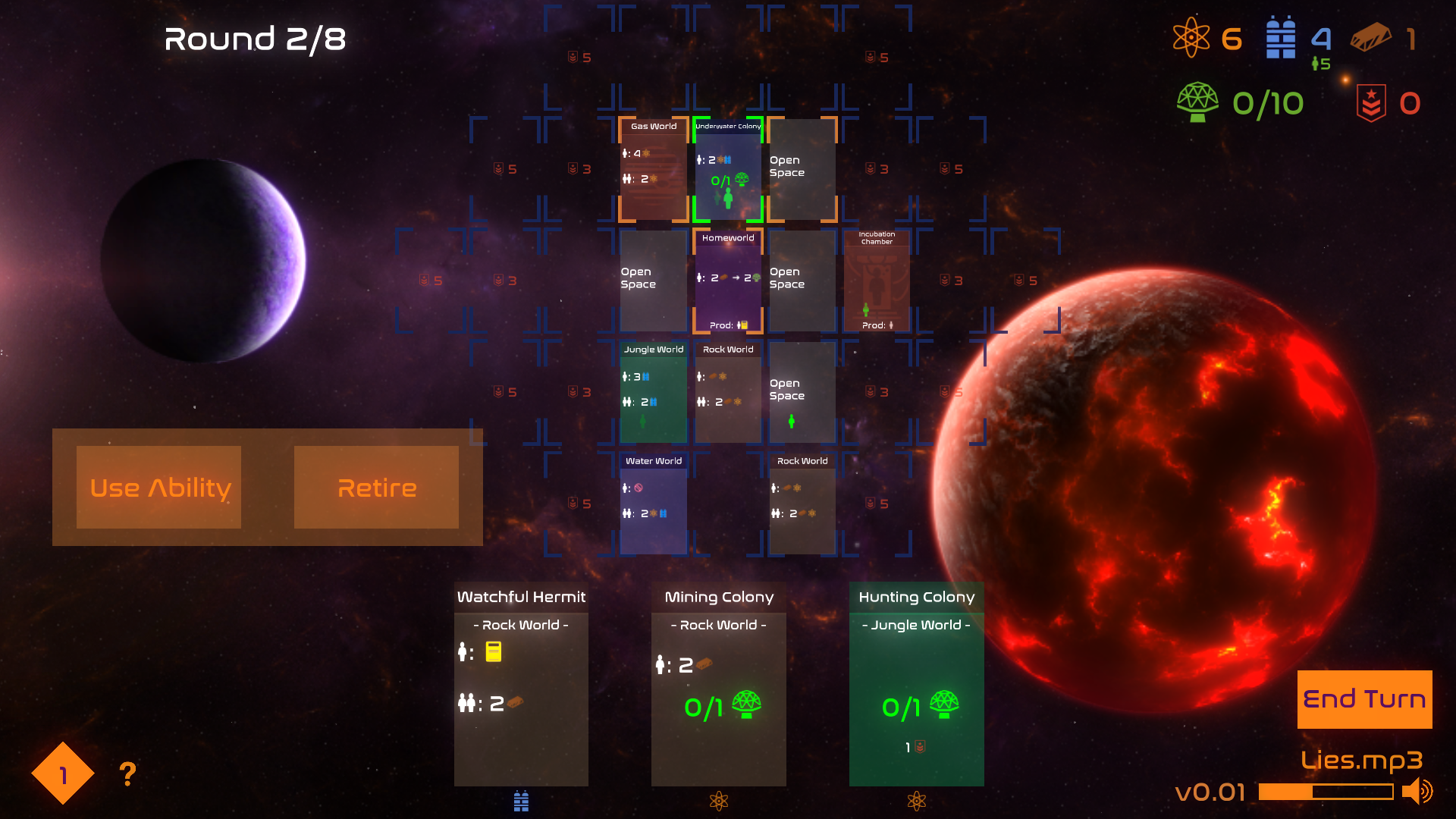Solar Settlers is my new favorite game to kill an hour with
A relaxed space colonizing game reminiscent of many strategy board games, but copying none.

It’s always nice to find an overlooked gem, especially in the niche genre of digital board games, and Solar Settlers is my latest pleasant discovery. A singleplayer game clearly inspired by contemporary economics-driven strategy board games, Solar Settlers is driven by all about doing as much as you can in a single turn. It's about getting as much from your moves and your cards as is possible. That said, it's not quite like anything popular in either the digital or analog spaces right now.
With your species’ previous home no longer viable, you’re in charge of settling them on a plethora of new worlds in a new planetary system. Released in 2017, it's not a beautiful game, with graphics that could be described as spartan at best. Despite that shortcoming I’ve been coming back to Solar Settlers over and over since my first play. It has strong mechanical bones and it’s easy to get lost in the experience of optimizing the hand you’re dealt to overcome the challenges of space exploration and colonization.
Solar Settlers is played on a grid of random cards, most of which start the game unexplored and invisible. Each turn, you move your colonists around the board, exploring new tiles, exploiting discovered planets for resources and more colonists, or settling down permanently on a discovered colony space. Moving requires you to spend Hydrogen Fuel, one of your resources, and any unsettled colonists use Oxygen at the end of the round. Settle too many colonists and you don't have a work force to get new resources or explore, settle too few and you spend all your time just keeping them breathing.
The final resource, Metals, is spent to play cards from your hand. Cards improve the existing board, replacing or altering the planets you’ve found. You can lay down a fuel station on a gas giant to produce fuel with no action required, turn a jungle world into a military enclave for mutant soldiers, or establish bubble colonies for permanent settlers on an ocean planet.
All the while you’re working against the clock. You have a set number of rounds, based on difficulty, to settle a certain number of colonists—nothing else really matters to your score other than the speed at which you can find people permanent homes. It’s much like worker movement and 4X board games such as Archipelago or Eclipse where you use economics to come at your win condition problem obliquely. Establishing a functional income of resources and new colonists isn’t how you win. You win by settling colonists, which means you lose them as workers. You win by dismantling the economy you worked so hard to build.
Solar Settlers’ truest strength is that it’s a singleplayer game. There’s no opponent but your past performance. As you play, your rank goes up, feeding into a sliding difficulty scale based on your past performance. As you rank up you unlock new cards, scenarios, and species to play as—each with a challenging twist on the rules. You can knock out a game in about twenty minutes, and that’s an ideal amount of time for me when I’m busy. If I can sit down for an hour and play three games of meaningful, interesting strategy, that’s way better than the fraction of another solo board game I’d get done.
If you’d like to see what I see on the galactic frontier, Solar Settlers is available on Steam from indie developers BrainGoodGames.
Keep up to date with the most important stories and the best deals, as picked by the PC Gamer team.
Jon Bolding is a games writer and critic with an extensive background in strategy games. When he's not on his PC, he can be found playing every tabletop game under the sun.

